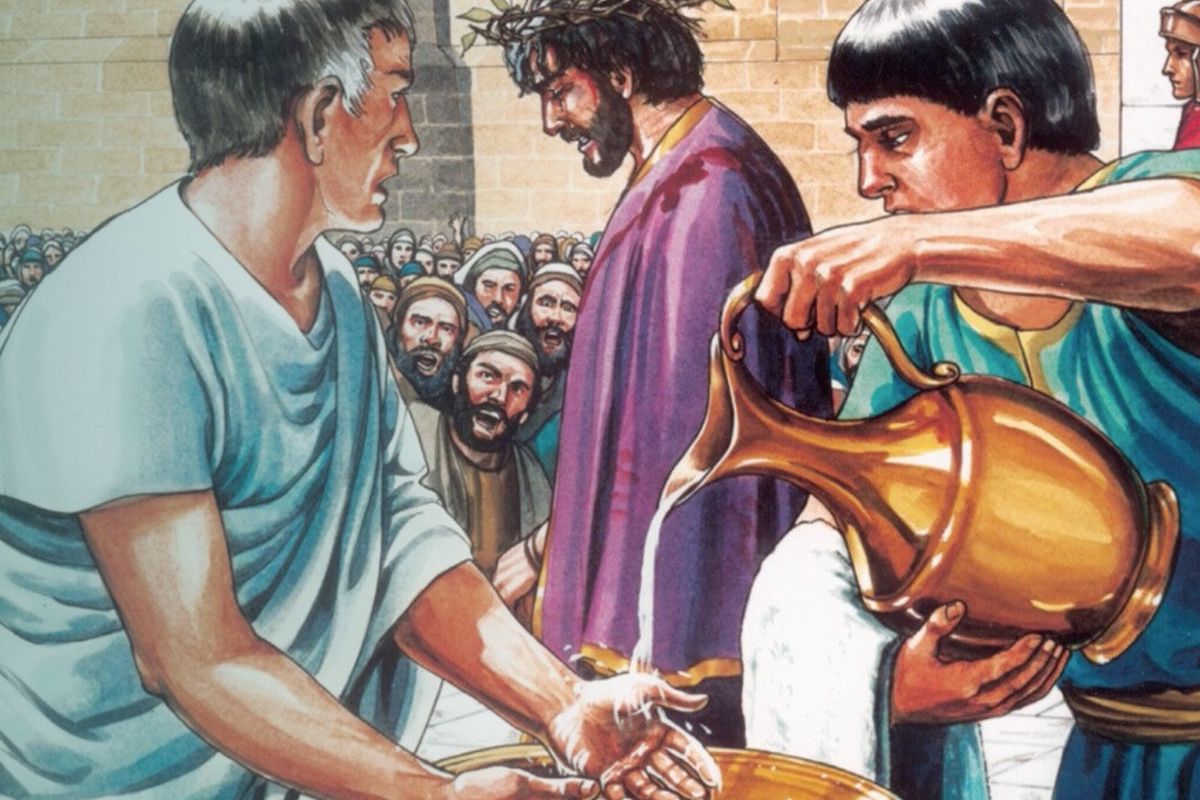
This article examines the politics of compromise in the crucifixion of Jesus. The focus is on the power of conviction and the high cost of standing up for what you believe in.
During Jesus’ time, power structures were complex, and political affiliations were often opportunistic. In addition to Roman control of Palestine, religious groups like the Pharisees and Sadducees rose to prominence, and various social groups fought for control.
Political and religious leaders were often selfish and didn’t prioritise people’s needs and well-being, acting unfairly and immorally to maintain power.
The Politics of Compromise
In Judea during the Roman era, religion and politics were complicated. The two prominent religious factions, the Pharisees and Sadducees, made significant efforts to maintain their distinctive religious and cultural identities while vehemently resisting Rome’s cultural and political dominance.
However, the Sadducees frequently collaborated with the Roman government, which enabled them to maintain authority over the Temple and its finances and consolidate their position as the dominant Jewish political and religious figures. The Pharisees valued Jewish law and tradition over Roman engagement, leading to significant conflict between the two sects.
Although they had different ideologies, they were willing to work together to maintain their power and influence, collaborating with the Romans and using their power to further their agendas, as the crucifixion of Jesus shows.
The Compromise of Politics
The religious leaders wanted to crucify Jesus, so they appealed to Pilate, the Roman governor. But Pilate was more concerned with preserving his power and avoiding political conflict than doing the right thing.
Pilate was in the middle of a political flashpoint and did not want to upset Jewish leaders and risk rebellion in Judea. Moreover, he did not want to offend the Roman authorities by allowing a potential revolutionary to go free.
As Pilate was uncertain of Jesus’ guilt, he conveniently sent him to King Herod based on the rules of jurisdiction. Herod found no fault with Jesus, but his sole motive for engaging with Jesus was to further his personal and political interests.
When Herod found no fault with Jesus, Pilate returned him to the Sanhedrin, hoping they would drop the charges. Pilate ultimately decided that Jesus should be crucified, but he did so reluctantly and with moral ambiguity, allowing the religious leaders to have their way.
Pilate’s decision to stay neutral in the face of injustice was a compromise.
The Power of Conviction
In contrast, Jesus exemplifies the importance of remaining steadfast in one’s convictions. He put truth and justice above all else and refused to change or give up on his mission, even when facing punishment or death. Jesus’ unwavering dedication to his principles is seen in his silence at this pivotal moment.
The Sounds of Silence
It’s critical to remember that Jesus called Herod Antipas a “fox” before (Luke 13:32). This occurred when some Pharisees warned Jesus that Herod planned to kill him. In Jewish culture, the term “fox” describes someone considered deceitful and untrustworthy. By using this term to describe Herod, Jesus likely expressed his disapproval of how Herod wielded his power to achieve his ends.
Herod tried to get Jesus involved in his political schemes, but Jesus stayed true to his beliefs and refused to change or give up on his mission. No matter what, he stayed steadfast in his beliefs, even when facing punishment or death. Jesus’ unwavering dedication to his principles is seen in his silence at this pivotal moment.
The Moral Courage
The encounter between Pilate and Jesus exemplifies political compromise, as Pilate callously condemns an innocent man to safeguard his interests and retain his hold on power.
In a world where truth is a matter of opinion, political expediency often comes before truth. Through his question, “What is truth?” Jesus reminds us that truth extends beyond political power. He exemplifies how politics must serve the common good and moral principles should govern it.
Staying True to His Principles
John 11:47–48 also shows how religious leaders used the idea of an “imagined enemy” to get people involved in politics. Pay attention to the tone: If we don’t stop him ( Jesus) now, everyone will put their faith in him. Then the Romans will destroy our temple and nation (John 11:47–48).
Despite intense political pressure, Jesus remained steadfast in his commitment to his principles and idea of the kingdom of God, a radical vision of peace and justice.
Following Jesus’ footsteps.
Jesus challenges us to consider how we can work to create a world where morality and fairness guide our choices. We must not be afraid to take a stand for what is right, even if it means going against the system.
We cannot allow our fear of conflict or desire for self-preservation to compromise our values or cloud our judgment. However, we recognise that this is often easier said than done.
Jesus dealt with the complex political and religious climate of his time by praying and staying true to his mission of love and kindness. Today, taking a moral stand in the face of injustice and exploitation is a real challenge.
During this time of reflection and repentance, as we strive to follow in Jesus’ footsteps, we can pray for guidance and strength. Through prayer, we can ask for the wisdom and insight to confront our challenges and stand up for justice and morality, even in the face of opposition.







